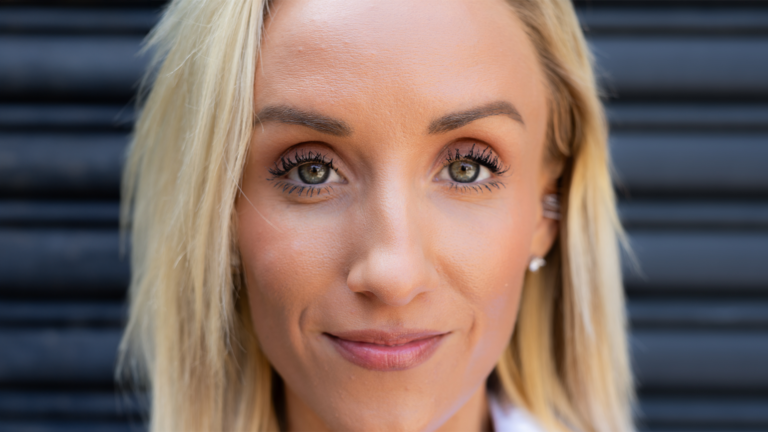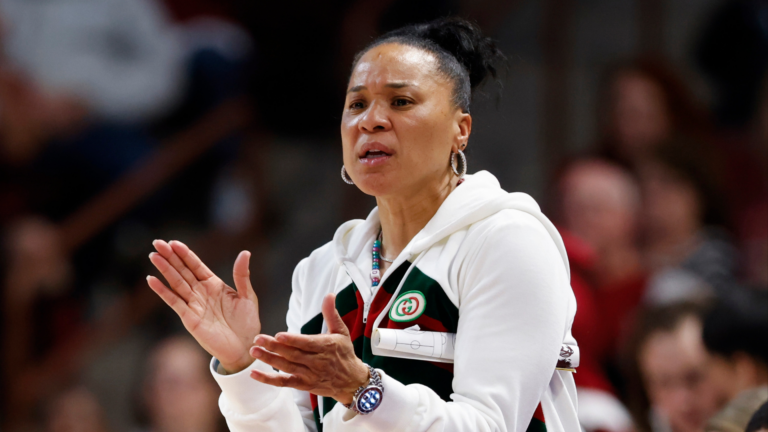This week’s conversation is with Becky Sauerbrunn, an American soccer player, Olympic gold medalist and two time FIFA Women’s World Cup champion.
A veteran defender for the United States women’s national soccer team, she also plays for the Portland Thorns in the National Women’s Soccer League, the highest division of women’s soccer in the United States.
Becky is a 4-time NWSL Defender of the Year and 7-time NWSL First XI selection.
In this conversation, Becky shares what’s it’s like to be at her best… which she describes as fleeting.
It’s those moments where everything slows down and she can see the play happening before it actually happens… every decision she makes is the right … and she’s completely present.
Those moments are elusive though and so we unpack what gets in her way.
“My lifelong journey is to recognize when I’m hypercritical of myself and then have the right skills to get over it.”
In This Episode:
How does she describe her best?
My best is fleeting at times because I think I get to moments in my performance where you hear about these ideal performance zones where everything kind of slows down, and you see plays happening before they actually happen and you’re making the right decisions and you’re just completely present. And I would say, that’s my best, and I don’t get there a lot at all. But for me, that’s the addicting part is can I get that to happen more and more often?
What’s her ideal mindset?
Confident, intuitive, not second guessing. I’m trusting my instinct. Technique is secure. It’s on point. Just I’m focused, I’m present, I’m bringing people along with me, and I’m communicating. I feel good communicating. People are listening, people are receptive, I’m receptive.
Making the choice to be honest
A tenant of who I am and who I want to be is that I’m honest with people about my struggles. I try to be empathetic. And so, I’m aware of other people’s struggles. And so, I think I respond really well when people are honest and vulnerable. So, I’ve tried to then also take that into my own way of approaching things. Once I realized, if I was honest with how I was feeling. If I was empathetic, if I listened, those relationships just got more and more deep. And I realized, I don’t want quantity, I want quality. And so, leaving high school I would say I probably only had one or two friends I even stay in touch with, and then leaving college just so many more people. And so, I just feel like my life has just been more and more enriched because of that.
Has there been a dark side to becoming an elite soccer player?
I feel like in some ways my life has been put on pause. I do have people that I have really good relationships with, but they are kind of in that soccer sphere. And so, I don’t really have a lot of people outside of that. And even my boyfriend I’ve been with him for 14 years since college. He played soccer, so he understands me. And so, all my deep relationships are within this single world, and I feel like the dark side is that I do sometimes feel disconnected to life and I’m getting older, and it’s the idea of starting a family and am I ready to do that or ending the soccer chapter and then going into that next, what am I going to do? What’s my job going to be? Because I’m not making walking away money. So, I need to consider what are those next steps? And am I even prepared? I’ve dedicated my life to my craft. And so, I feel like I’ve kind of missed out on a lot of other things.
Imposter syndrome
Sometimes I do feel inferior to the people around me. And I feel like I’m part of a special team and I’m also like, “How did I get here?” And because I feel that way my preparation, and what I do behind the scenes with the people around me is to prove to them, and to myself every single day that I do deserve to be here, and I’m not going to let you down. I will try really hard not to let you down. Sometimes I will. But just know that I’m trying to do everything in my power to make sure I don’t.
Self-critique
If I’m being super self critical, I try to analyze what part of the game am I being so critical about? Is it a technical issue? Am I emotionally not in the right mindset? And so, from there, I can narrow it down to one of a quadrant. And then if it’s a technical issue, my skill is like, do the next thing simply. Don’t overcomplicate it. For me, it’s make a tackle, connect your first pass. And so, that’s what I try to do after every mistake. The next time it’s not going to be a mistake. It’s just going to be a simple pass. It might not lead to a goal but you know what, we kept possession, and that’s a check in the win area.
How does she manage the pressure of the Olympics and World Cup?
Our coach for the 2019 World Cup, Joe Ellis probably said this the best is that other teams visit pressure. We live in the pressure. And so, I’ve never heard that said so well, and just so appropriate to our team that we create pressure. And sometimes it’s the pressure you put on yourself. It’s the pressure of competing with your teammate for playing time. It’s the pressure of we always have to win. We’re on a very successful team. And we’re only relevant when we win. And so, we’re always under this amount of pressure. And so I think that really helps us going into these world events because it is another game, but it’s always a seven, eight.
What’s she like at her worst?
Defeated, second guessing everything, unfocused, not present, foggy. I have gotten better at recognizing when I’m going down a bad pathway. And I’m fortunate that I have people around me that recognize it. And they’re like, you’re doing that thing where you sigh a lot because that’s kind of my outward. I just sigh very deep. And they’re like, “You’re doing that. Why are you doing that?” And it kind of is like a, “Okay, I’m doing this because I’m dreading this or I’m feeling very uncomfortable about that.” And then it’s like, “Okay, well then what can we do then to correct the path and not dread that or not be critical about that.”
What’s at the center of the U.S. Women’s National Soccer team culture?
It’s centered around excellence and that incorporates competitiveness, and literally everything that we do, we are doing it to the best of our ability. So whether it’s a film session, a training, a game, you better bring your A game or you’re just not going to be here because there are a lot of people that are home right now that want to be here, and are willing to give that effort. So that competitiveness and that strive for excellence in all things, I think is a core tenet of our culture. But then I would also say grit is probably equally as important and the resiliency of showing up every single day when you’re tired, you’re slightly injured. We just traveled from China. There are things like you have to show up every single day with the same mentality, the same focus, the same willingness and effort. And I think that’s what separates great players from good players. But I also think with our national team, great national teams from just okay national teams.
What makes a great coach?
Two things. They are good managers of people. And they have a good tactical understanding of the game of soccer.
When’s the last time she saw mastery in action?
When I think of soccer and mastery, I think of a Messi or Cristiano Ronaldo. Someone who clearly gets the game, and has gotten and optimized all those things about themselves to make them the best versions of themselves. And that’s elevated then from other people
What’s her hope for the next generation
I would hope that they make mistakes, and they’re okay making mistakes. And they’re not punished for their mistakes that they actually have an opportunity to learn from those mistakes. And I think from too young of an age, people feel like they have to be perfect. And they just get so disheartened because they’re not, and they shouldn’t be expected to. They’re young. So, I would hope that what’s populating the waters is just that safety of knowing that you can try things, and some things will work and some things won’t work. And that’s okay, grow from that.
What prompt would she give someone to get to know themselves better?
When you’re feeling a certain way. Positive or negative, taking a little bit of time to just analyze and try to figure out why you’re feeling that way. And I think we’ve gotten to the point where we have to feel so distracted by TV or by social media or your phone. And just having that quiet moment to just self analyze, and try to understand why you’re feeling that way and then deal with, if you can, why you’re feeling that way. It’s a very easy thing to say, hard to do. But I think that struggle, and that attempt will open up different things that you weren’t aware of.


